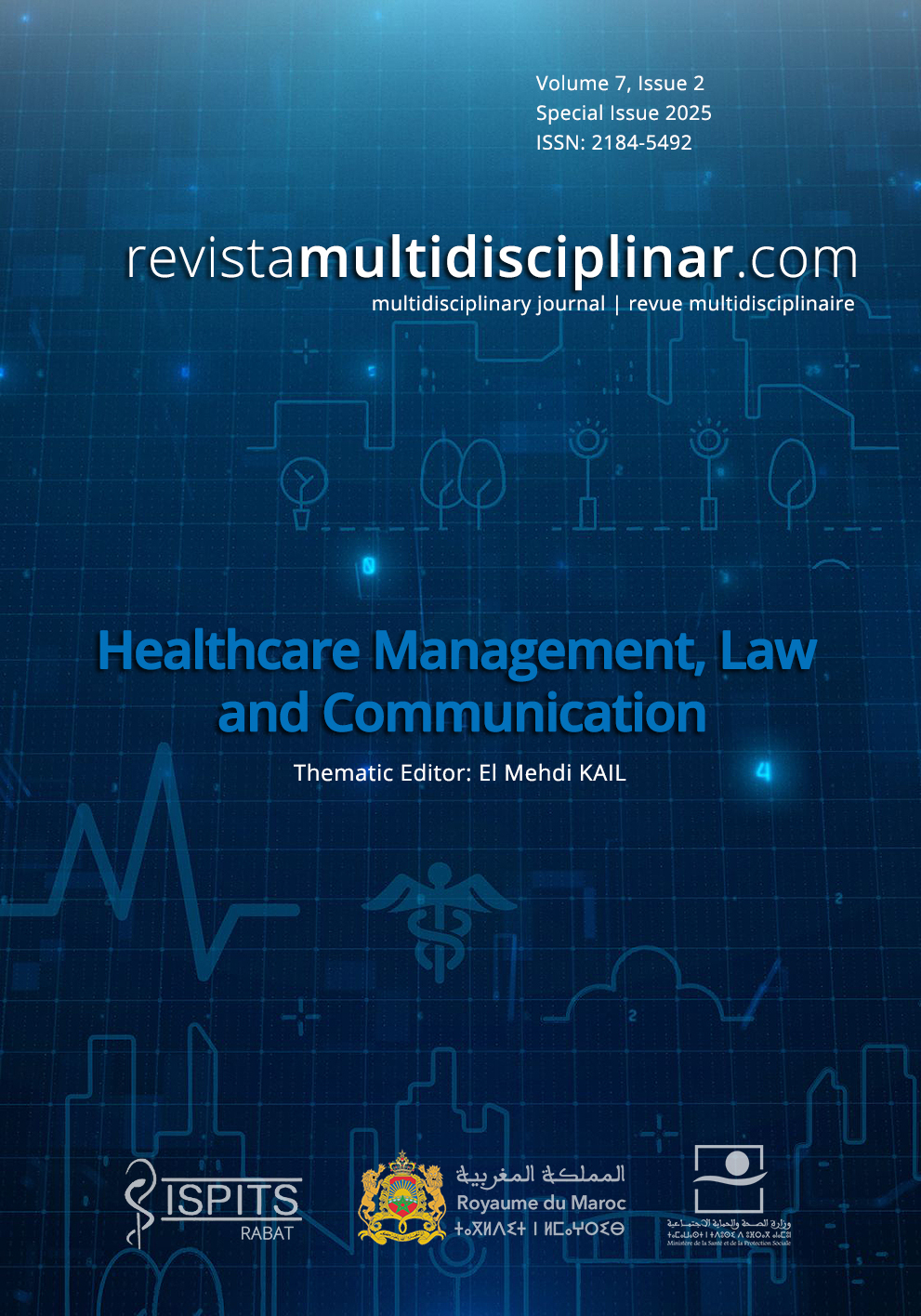The determinants of governance in the context of health insurance
Proposal for a conceptual model
DOI:
https://doi.org/10.23882/rmd.25249Keywords:
Governance, Health insurance, Conceptual model, social protection, DecisionmakingAbstract
This article explores the determinants of governance in the context of health insurance by
proposing an integrated conceptual model. The governance of health insurance systems is
essential to ensure efficiency, equity, and sustainability, particularly in a constantly evolving
environment. Based on an in-depth literature review, the study identifies three categories of
influential factors: systemic factors, organizational factors, and interactional factors. Systemic
factors notably include organizational culture, while organizational factors encompass
decision-making structures and policy consistency. Interactional factors focus on stakeholder
participation, supervision, regulation, and access to information. The article proposes
hypotheses regarding the positive influence of these factors on health insurance governance,
thus paving the way for future empirical research. This conceptual framework aims to provide
a tool for analyzing and improving governance in health insurance, contributing to better
decision-making for public policy managers and decision-makers.
References
Abdelkader, E. K., & Imichoui, H. (2022). Le financement public du système national de santé au Maroc: une gouvernance orientée vers l’équité.
Apaza, C. (2008). La pertinence des «Indicateurs Mondiaux de la Gouvernance»: Un débat scientifique en cours. Revue Française D'administration Publique, 3, 591-599.
Assemblée Mondiale De La Santé (2000). Rapport sur la santé dans le monde, 2000: Pour un système de santé plus performant. Organisation Mondiale de la Santé. https://shre.ink/blh3
Barata, M. O. (trad.) (s.d.). Etymologie du terme « gouvernance », service de la traduction de l’Union Européenne. https://ec.europa.eu/governance/docs/doc5_en.pdf
Chantaraud, J.-F. (2012). Gouvernance, lien social et performance: une vision du monde: rapport 2012. La documentation française. Observatoire Européen des Politiques Familiales.
De Pouvourville, G. (2011). L’assurance maladie en France: Beveridge et Bismarck enfin réconciliés?. In : Annales des Mines-réalités Industrielles. Eska, pp.19-24.
Deneault, A. (2013).Gouvernance: le management totalitaire.
Fama, E. F., & Jensen, M. C. (1983). Agency problems and residual claims. The Journal Of Law And Economics, 26(2), 327-349.
Freeman, R. E. (1984). Stakeholder management: a strategic approach. New York: Pitman.
Graham, J., Plumptre, T. W., & Amos, B. (2003). Principles for good governance In The 21st Century. Ottawa: Institute On Governance.
Hufty, M. (2007). La gouvernance est-elle un concept opérationnel? Proposition pour un cadre analytique. Fédéralisme Régionalisme.
Karsi, M., & Bennana A. (2020). The governance of basic health coverage: a systematic review. Ethiopian Journal of Health Development, 34(3).
Maeda, A., Araujo, E., & Cashin, C. (2015). Une couverture sanitaire universelle pour un développement durable inclusif : Une Synthèse De 11 études de cas pays. The World Bank.
Martin, P. G. (2021). L’assistance d’État gérée par l’assurance maladie (CMU/AME).
Mcgrath, S. K., & Whitty, S. J. (2015). Redefining governance: from confusion to certainty and clarity. International Journal of Managing Projects in Business, 8(4), 755-787.
Monod, S., Pin, S., Levy, M., Grandchamp, C., Mariétan, X., & Courvoisier, N. (2024). Analyse de la gouvernance du système de santé suisse et proposition d’une loi fédérale sur la santé.
Nations Unies (1948). La Déclaration universelle des droits de l'homme. http://www.un.org/fr/universal-declaration-human-rights/index.html.
OCDE (2004). Principes de Gouvernement d’entreprise de l’OCDE. https://shre.ink/blhv
OMS (2010). Rapport sur la santé dans le monde : Financement d’une couverture universelle. https://shre.ink/blhz
Pesqueux, Y. (2010). Gouvernance, de quoi s' agit-il?. In : Colloque GEQC.
PNUD (1993). Rapport mondial sur le développement humain. Economica. https://shre.ink/blhc
Pouillaude, A. (1999). La" bonne" gouvernance, dernier-né des modèles de développement. Aperçu de la Mauritanie. Groupe d'Economie du Développement de l'Université Montesquieu Bordeaux IV.
Rhodes, R. AW. (1997). Understanding governance: Policy networks, governance, reflexivity and accountability. Open University Press.
Rizvi, S. A. F. (2023). Dépenses et financement de la santé; une perspective de déterminants macroéconomiques et de microfinancement pour les pays en développement (Un cas du Pakistan) (Doctoral dissertation, Université Clermont Auvergne.
Robillard, O. (2014). Éthique: un complément aux théories de la gouvernance actuelles? Thèse de Doctorat.
Ruhanen, L., Scott, N., & Ritchie, B. (2010). Governance: A review and synthesis of the literature. Tourism Review, 65(4), 4-16.
WHO, World Health Organization (1978). Declaration of Alma-Ata. https://shre.ink/blha
WHO, World Health Organization (n.d.). Universal coverage, three dimensions. WHO. https://www.who.int/health_financing/strategy/dimensions/en/
Downloads
Published
How to Cite
Issue
Section
License
Copyright (c) 2025 Mohammed Karsi, Redouane Aboukal

This work is licensed under a Creative Commons Attribution-NonCommercial 4.0 International License.









